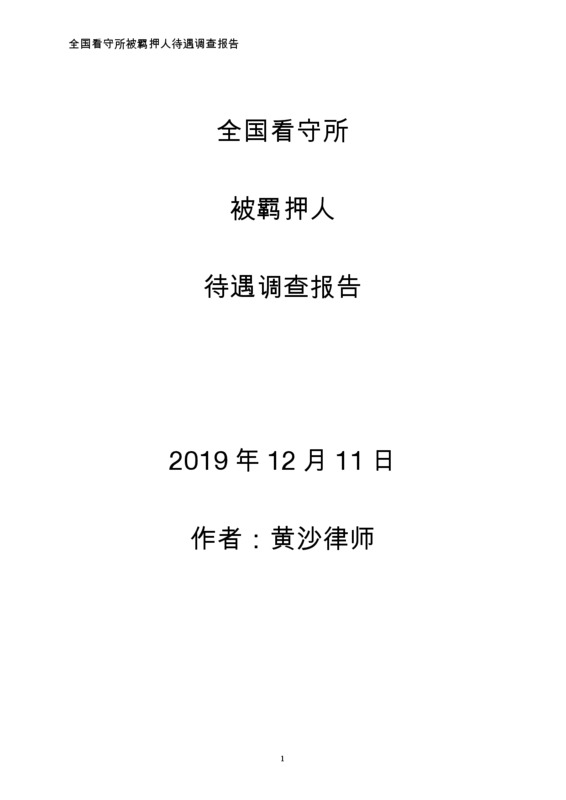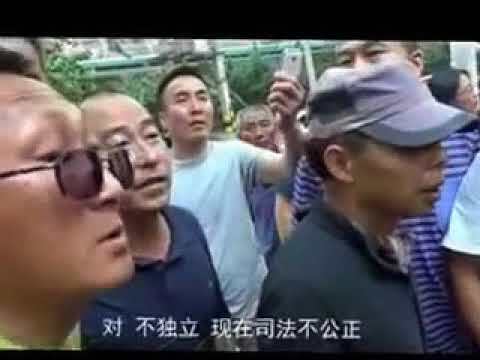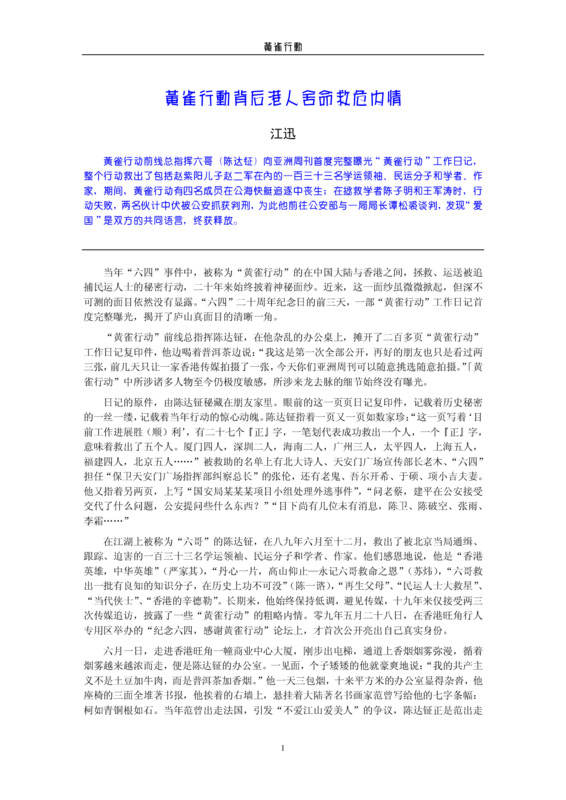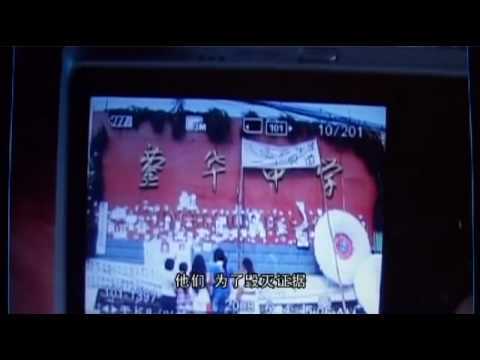Explore the collection
Showing 92 items in the collection
92 items
展览
Above Ground: China's Young Feminist Activists and Forty Moments of Transformation (English)
In March 2015, the arrest and detention of five activists in China brought international attention to the feminist movement in that country, which had already been battling gender discrimination, sexual harassment, violence against women, and homophobia for many years. While the West has only recently turned its attention to the “Feminist Five” and their fellow activists, China has a long and deep history of feminist thought and action. This exhibit seeks to make visible the work of recent feminist activists in China, to share their work with a broader audience, and to spark interest in the history and present of feminist activists, advocates, and scholars in China.
This digital exhibit is a faithful representation of a physical exhibit of the same name, which was hosted by the University of Michigan’s Institute for Research on Women and Gender from January through June 2016.
The exhibit (English) consists of 40 images depicting street actions and online campaigns initiated by young feminist activists, raising awareness and demanding government actions around issues of domestic violence, sexual harassment, education and employment equality, rights of sexual minorities and marginalized groups , and so on.
At the opening of the physical exhibit on January 26, 2016, Lü Pin, the curator of the exhibit and a long time feminist activist and researcher, remarked on the creative and subversive strategies of the young feminist activists:
“That’s why this was a story about visibility from the very beginning. First of all, they wanted people to have to notice this issue. Second, they wanted people to have to notice this group of people. ‘Noticing the issue’ was not just about making the issue of women’s rights become well-known, more importantly, it meant that the issue had to be accepted as a public issue that society would acknowledge as something that was very important. This was not something for women, or something private. Next, as we all considered this to be an important matter, the government had to respond. Thus, in this process, communication or media was very crucial, because it could amplify the power of the unknown.”
Using materials from the physical exhibit, this digital exhibit was created by librarians from University of Michigan Liangyu Fu (Chinese Studies) and Meredith Kahn (Women’s Studies), who created additional descriptive information for the images, as well as a bibliography of relevant sources.
Go to Exhibit: https://apps.lib.umich.edu/online-exhibits/exhibits/show/aboveground.
Book
Our Stories: Women in COVID-19 in China
This is the fourth issue of the “Our Stories” series published by WeChat public account “We and Equality,”, a compilation of 20 oral narratives from Chinese people who lived through the COVID-19 pandemic firsthand, and a personal reflection by the author of this issue, Qiao Yilin. The editors hope to “document the history of ordinary people, to combat the forgetting that should never have happened, and to present the real experiences, feelings, and voices of all of us–to help us remember what has happened to us.”
The interviewees in this volume are diverse, including those of different ages, educational background, ethnicities, physical and mental status, sexual orientations,marital status, and mobility. They shared their own memories of the pandemic, including facing threats to their survival due to food shortage, not being able to take anti-depression medication due to the lockdown, international students having a hard time returning to China, people with hearing impairments facing various inconveniences, and the discrimination faced by those who had recovered from COVID-19Although primarily focusing on experiences and feelings during the pandemic, many interviewees shared additional personal stories that provided useful background information for readers to understand their situation during the pandemic.
In addition to these personal narratives, “We and Equality” also published a 44-question “Women's Mental Health Questionnaire” on WeChat, asking about respondents’ experience during the pandemic, including their sense of belonging, care/housework commitments, sleep quality, emotional and mental status, feeling about quarantine, lockdown, illness or death of loved ones, and attitudes towards the government’s COVID-19 policies. The questionnaire received a total of 453 valid responses. Based on the responses, “We and Equality” has compiled a bilingual data analysis report.
”We and Equality" is a grass root project started in November 2016. Through the WeChat public account, they publish articles weekly to raise awareness and share knowledge on gender-related issues in China. They also organize in-person activities bi-weekly where people gather for in-depth discussion, and foster a community to promote gender equality.
Book
Active Life
This is a collection of essays by Cui Weiping, a professor at the Beijing Film Academy. The title, inspired by Hannah Arendt, covers a wide range of fields from poetry and movies to politics and ethics, and tells the stories of fascinating people, the construction of their inner world and external lives. These people include Hai Zi, Wang Xiaobo, Arendt, Woolf, Beauvoir, Tarkovsky, Kremer, Herbert, Havel, and many others. Behind these seemingly unrelated names, there are hints of these two interdependent spiritual dimensions: on the one hand, the construction of the external world in which we live; on the other hand, the construction of our own inner world, which cannot be neglected. This book, published by Renmin University of China Press in 2003, has had a significant impact on the development of civil society in China.
Film and Video
An Investigation by Citizens
Following the release of the documentary Our Children, this film shifts focus to ’s post-earthquake efforts to investigate and defend the rights of families who lost children in the disaster, as well as the immense obstacles and pressure he encountered in the process.
In late August 2008, after the 100-day mourning period for the May 12 Sichuan earthquake, rescue forces began to withdraw and media coverage of the school collapse deaths ceased, even though many families still had not received a satisfactory explanation as to why so many schools had collapsed while other buildings remained intact. Due to contradictory official statements, selective disclosure of information, and deliberate concealment from the public, environmental activist Tan Zuoren, along with Xie Yihui and local volunteers in Chengdu, launched an independent citizens’ investigation into the victims of the 5.12 earthquake during the winter of 2008. They believed that only those directly affected—namely, the parents—could provide truthful and reliable accounts.
They traveled across residential districts, searching for the causes of the school building collapses, recording the experiences of local residents, and tallying the number of victims. Through autumn and winter, Tan and Xie journeyed across 80 townships in 10 of the worst-hit counties, covering over 3,000 kilometers. Just before the one-year anniversary of the earthquake, they published their findings online, marking the first independently conducted citizen investigation into the school tragedies of the Sichuan quake.
During the investigation, Tan Zuoren stated, “There’s a high chance I’ll be arrested and sentenced to three or five years. I’ve already mentally prepared myself for that. But in the face of such a massive disaster, if no one stands up to speak, if we all shrink back like turtles hiding in their shells—then I’d rather spend those three or five years not seeing anyone.” As Tan anticipated, he eventually lost his freedom. His wife and daughter waited for the results of his trial.
Meanwhile, in Beijing, artist Ai Weiwei initiated a broader citizen movement. New volunteers arrived in Sichuan to compile the names of the children who had died. This film follows their footsteps, documenting their motivations, determination, and the many forms of obstruction they encountered. As Ai Weiwei wrote in a blog post before starting, there were only two scenarios in which he would stop the investigation: either he was no longer alive, or the list was complete. This film is an incomplete record of the citizen investigation. It also served as one of the pieces of testimony submitted to the court during Tan Zuoren’s trial for “inciting subversion of state power.”
Book
Anthology of Essays by Zhang Zuhua, An
Zhang Zuhua is an independent scholar in China. In his early years, he served as a member of the Standing Committee of the Central Committee of the Communist Youth League, Secretary of the Youth League Committee of the Central State Organs. Later, he worked at a private research institute, mainly engaged in political modernization, the theory and practice of constitutional democracy, and China's political reform. He was a key participant in China's Charter 08 in 2008. This book is a collection of his political essays.
Book
Democracy Curriculum
Written by Chinese liberal intellectual Liu Junning, this book circulated underground in 2006. The book parses the fundamentals of democracy as well as historical experience. It was quickly banned in China.
Film and Video
Enemy of the State
On February 9, 2010, Tan Zuoren was tried in the Chengdu Intermediate People’s Court for the crime of inciting subversion against the state. Ai Xiaoming and her team recorded the three days before and after the verdict, the mindsets of Tan Zuoren’s friends and relatives, and how the lawyers carried out their work.
This film is in Chinese with Chinese subtitles.
Book
Free Zhang Zhan
Zhang Zhan, born in 1983, is a Chinese lawyer and a dissident of the Communist Party system. In early February 2020, she rushed from Shanghai to Wuhan, which was under lockdown due to the COVID-19 epidemic, to conduct on-the-spot interviews and released a series of video reports on Wuhan's lockdown. More than three months later, she was arrested by Chinese police for "picking quarrels and provoking trouble" and taken to Shanghai for detention.
In December 2020, she was sentenced to four years in prison for picking quarrels and provoking trouble. Zhang Zhan went on hunger strike in the detention center and prison, and there were reports that he was critically ill several times. Her courage and resistance attracted the attention of the international community.
The book *Free Zhang Zhan* was edited and created by Wang Jianhong, the head of the "Zhang Zhan Concern Group" on the Internet. It brings together Zhang Zhan's articles and self-media posts published on the Internet, as well as interviews of Zhang Zhan before she lost her freedom, and interviews, as well as poems and articles from outsiders supporting Zhang Zhan. The book reviews the course of Zhang Zhan's case, Zhang Zhan's struggle in prison and the repercussions it aroused at home and abroad. It was published on May 13, 2024 when Zhang Zhan was released from prison after serving her sentence.
This book preserves and records the history of Wuhan's lockdown in China due to the COVID-19 epidemic. Nowadays, Zhang Zhan's articles and words of support for her have been censored and blocked in China, which makes the book even more precious.
Film and Video
Garden of Paradise
The year 2003 was known as the birth of the Weiquan—the rights defense–movement, which was marked by the Sun Zhigang incident in Guangzhou. At the same time, a campaign began to get justice for Huang Jing, a teacher from Hunan who was sexually assaulted and killed by her boyfriend. The campaign involved the victim’s family, netizens, feminist scholars and activists, and lasted for several years. This documentary records the process of Huang Jing’s case from filing to post-judgement, and analyzes the broader issue of sexual violence against women in China.
The films in this series are in Chinese with Chinese subtitles.
Article
Huang Sha, 2019 National Survey on the Treatment of Detainees in Custodial Facilities
This report focuses on the human rights situation in detention centers in China. Mr. Huang Sha distributed the questionnaire to the practicing lawyers he knew, and then the practicing lawyers took the questionnaire and filled it out in the form of questions and answers when they met detainees in the detention centers. The questionnaires were then collected and counted, resulting in a research report. The span of time for filling out the questionnaire in the detention center is: from July 2, 2019 to November 19, 2019. There were 101 valid questionnaires recovered.
Article
Jiang Qisheng: Civilian Report on the Situation of June 4 Victims in China
The Tiananmen Square massacre on June 4, 1989 and the subsequent mass arrests and purges created tens of thousands of June Fourth victims. Among them were June Fourth victims who fell into a pool of blood, the June Fourth disabled who were shot, the families of the June Fourth victims and the severely disabled, the June Fourth prisoners of conscience who were sentenced to imprisonment or re-education-through-labor, and the June Fourth victims who were subjected to other political persecution. On the occasion of the 20th anniversary of June Fourth, as part of Chinese civil society's efforts to recover the historical truth and rebuild historical memory, this report gives a basic description of the suffering of the June Fourth victims and their arduous journey over the past 20 years. It also analyzes the systemic factors that have contributed to the victims' suffering and proposes corresponding recommendations on how to change their living conditions.
Film and Video
Let the Sunshine Reach the Earth
Wang Lihong is a Beijing netizen, civilian journalist, and public service volunteer. Wang was accused of “picking quarrels and provoking trouble” for supporting three netizens in Fujian. On August 12, 2011, the case was heard for the first time in the Wenyuhe Court of the People's Court of Chaoyang District, Beijing. This film includes interviews with Wang Lihong's relatives, friends, defense lawyers and netizens, and records the historical scene of onlookers in the courts.
Ai Xiaoming’s film “Postcard,” also released in 2011, elaborates Wang Lihong’s activism in broader strokes, while “Let the Sunshine Reach the Earth” focuses on the process of her trial.
This film is in Chinese with Chinese subtitles.
Book
Liu Xiaobo Memorial Anthology
This book is a collection of essays in memory of the Nobel Peace Prize winner Liu Xiaobo. It was edited by Cai Chu following his death.
Book
My Mother :Gao Yaojie
Author Eva writes about her relationship with Gao Yaojie, a Chinese doctor. Dr. Gao Yaojie, who was severely repressed by the Chinese government for exposing the mass infection of Chinese farmers in Henan Province, China, by selling their blood, had no choice but to leave China at the age of 78 and go into exile in the United States. The dissemination of her story is strictly forbidden in China. In this book, author Eva describes Gao Yaojie's noble heart, her story, and her experiences.
Film and Video
New Citizens’ Trial
In June 2010, scholars and activists Xu Zhiyong, Teng Biao, Wang Gongquan, Li Xiongbing, Li Fangping, Xu Youyu and Zhang Shihe (Tiger Temple) initiated the signing of the “Citizen's Pledge”, which called on Chinese citizens to “abide by principles of democracy, and the rule of law, safeguard the rights and livelihood of the people, and promote good governance”. On May 29, 2012, Dr. Xu Zhiyong, one of the founders of the pro-democracy movement “Open Constitution Initiative” (Gongmeng), published an article entitled “China's New Citizen Movement”, officially launching the <a href=“https://web.archive.org/web/20121226221847/http://biweekly.hrichina.org/article/1575”>“New Citizen Movement”</a>.
The goal of the New Citizens Movement is a free China governed by democracy and rule of law, a vibrant civil society, and a new national spirit of “freedom, justice, and love”. It aims to promote political and social transformation from authoritarianism to constitutionalism, and Chinese people will be treated as citizens, not subjects of the ruling class. Activities of the New Citizen Movement include advocating for equal rights in education, public disclosure of officials' properties, and organizing local citizen gatherings. (For more information on the New Citizens Movement, see the <a href=“https://cmcn.org/”>Chinese Citizens Movement </a>website. Organizers and participants in the New Citizens Movement have been subjected to repression and persecution.
On July 5, 2012, several hundred parents gathered at the Ministry of Education's Petitioning Office, displaying banners and chanting slogans demanding that the government protect migrant children’s right to education, before being stopped by police, who also beat them. As a result of this and other advocacy activities, New Citizens Movement organizers Xu Zhiyong, Zhao Changqing, and Ding Jiaxi were arrested in 2013 and charged with gathering a crowd to disrupt order in a public place, and their cases were heard for the first time at different levels of court in Beijing on January 22, 2014, on the eve of the Chinese New Year. All were sentenced to jail.
This documentary includes footage of the parents' protest in July 2012, and outside the courthouse at Xu Zhiyong's trial on January 22, 2014, as well as interviews with family members of the arrested activists, their lawyers, and academics, and supporters of the movement.On the day of his trial, hundreds of people showed up outside the courthouse in support, invoking Article 35 of the Constitution to point out that the case was an unfair trial that violated citizens' freedom of speech and expression.
In the film, Xu Zhiyong says in an interview that the New Citizens Movement wants to solve social issues through judicial processes, and that he believes it is important to take into account the perspectives of different stakeholders. Even with such a moderate stance, the authorities still harshly suppressed him and portrayed him as an enemy of the state. Scholar Guo Yuhua commented on the case : “If we wait for a ready-made civil society, there is none. Activism is to open up space where there is none, to create gaps where there are no gaps, and to expand it gradually.”
Film and Video
Onlookers
People from all over China rush to the scene of China's trial of Bo Xilai, the former Chongqing Party Secretary of the Communist Party of China. The trial took place in August 2013 at the Jinan Intermediate People's Court in Shandong Province. Reporter Liu Xiangnan captured the scene.
Article
Operation Yellow Bird
After the bloody suppression of the June 4 Democracy Movement, the Chinese Communist Party went on a massive manhunt for the key figures of the movement. Some Hong Kong people organized a secret channel to help pro-democracy activists escape from the Mainland, codenamed "Operation Yellow Bird." The author of this book, Jiang Xun, is a veteran of the media and describes in detail how the "Yellow Bird Operation" took place.
Article
Oral Interviews with Global Feminists
As one of China's foremost feminist activists and thinkers, Ai was interviewed by the Global Feminisms Project at the University of Michigan. In this interview, Ai talks about her upbringing as well as about the current state of feminism in China and its outlook.
Film and Video
Our Children
This documentary records the stories of the 2008 Sichuan earthquake. The narrators mainly consist of the parents of students who fell victim to the earthquake, and the film is interspersed with comments from media workers, independent scholars, internet authors, geologists, and environmental protection and legal workers. They expressed their views on the Sichuan earthquake from different perspectives.
This film is in Chinese with Chinese subtitles.



















